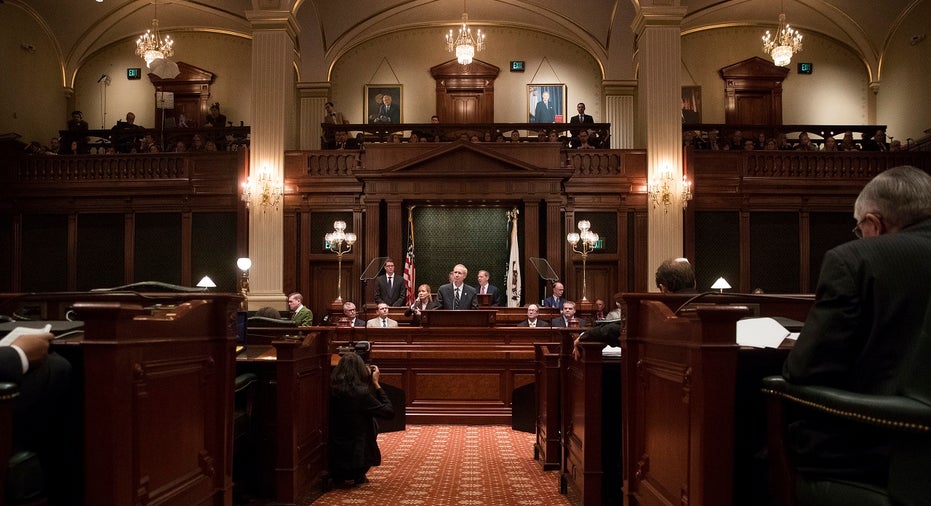Possible Illinois budget fix poses big financial questions

A Democratic plan to end Illinois’ crippling two-year budget stalemate is poised to be enacted by the state House of Representatives on Thursday, but the nearly 2,000-page package leaves gaping financial holes unresolved.
The fiscal 2018 budget plan, which has drawn both Democratic and Republican support in the legislature, does not guarantee funding for public schools to open on time next month. The plan identifies only enough funding to pay down roughly a third of the state's record $15 billion unpaid bill backlog.
In addition, no substantial progress was made to reduce Illinois’ paralyzing $130 billion unfunded pension liability. The state's pension contribution is set to consume more than $7.8 billion of the state's $36 billion budget in the fiscal year that began July 1.
Illinois on Thursday could end its dubious status as the only state to ever go multiple years without a full operating budget if the Democratic-led legislative chamber passes a budget and then overturns an expected veto from Republican Governor Bruce Rauner. The bill increases the state's personal income tax from 3.75 percent to 4.95 percent and corporate income tax from 5.25 percent to 7 percent.
Moody’s Investors Service issued a warning on Wednesday that even if the House follows identical Senate action Monday and overrides Rauner’s vetoes, the nation’s fifth-largest state risks a credit rating downgrade to junk because of unaddressed fiscal woes.
Moody's said the budget plan falls short of adequately addressing pensions and the backlog of unpaid bills. "It's not clear to me that they won't quickly find themselves with a comparable backlog and more long-term bonded debt," said Moody's analyst Ted Hampton.
Laurence Msall, president of the Civic Federation, a Chicago-based government finance watchdog, said the bill does not provide stability. “What rating agencies are pointing to, even with the tax increase if the General Assembly overrides the governor and with the spending plan as approved, the state still has severe financial challenges going forward,” he said.
Drafters of the budget package inserted language that ties release of billions of dollars for K-12 education to enactment of a school-funding overhaul that Rauner has called a “bailout” for Chicago’s cash-strapped school system. The House and Senate have passed the funding revamp, but Rauner has threatened to veto it.
If Republicans and Democrats do not reconcile their differences before the first state payment goes to schools in August, about a dozen financially struggling public school systems might not open for classes next month, said Roger Eddy, executive director of the Illinois Association of School Boards.
“We’re talking about children that are going to be affected by this stalemate at this point. That is absolutely not an exaggeration. This is real, and it’s going to happen,” Eddy told Reuters.
The budget impasse also resulted in a halt of construction projects and Illinois suspended sales of Powerball and Mega Millions tickets. In another key area--the state's $14.7 billion backlog of unpaid bills--the plan authorizes only $6 billion of general obligation bonds, as well as $1.5 billion in borrowings and transfers from other state funds for that purpose. Sufficient money exists only to support $3 billion of $6 billion in authorized bonding, which in turn would generate $2 billion in federal matching Medicaid dollars for unpaid bills.
The budget also purports to save $500 million from pension changes, although there were slim details on how those savings would be realized.
“The pension reform in (the legislation) doesn’t look like it’s really revolutionary or will move the needle in any big way,” Hampton said.
(Editing by Lisa Shumaker)



















